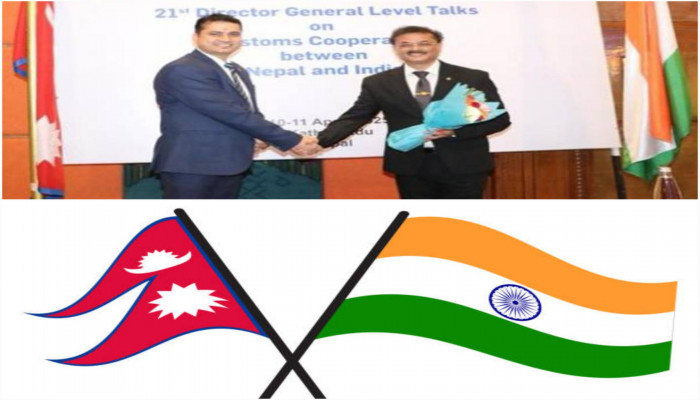India and Nepal agree to tackle cross-border smuggling of gold, narcotics
- In Reports
- 03:08 PM, Apr 14, 2025
- Myind Staff
India and Nepal have agreed to take more decisive actions to curb the cross-border smuggling of goods like gold, narcotics, fake currency, and items such as e-cigarettes, as per a statement from the Finance Ministry on Sunday. The matter was addressed during the 21st Director-General level talks on Customs Cooperation between the two countries, held in Kathmandu on April 10-11. The Indian team was headed by Abhai Kumar Srivastav, Director-General of the Directorate of Revenue Intelligence, Central Board of Indirect Taxes and Customs, Department of Revenue; Mahesh Bhattarai, Director-General of the Department of Customs, Nepal, led the Nepali team.
It was recognised that smuggling has been a common issue, and both countries expressed their commitment to work together to prevent smuggling across their borders through active cooperation and intelligence sharing. They agreed to take necessary actions to control unauthorised trade and collaborate closely on the matter.
Nepal is a key partner for India under its ‘Neighbourhood First’ Policy. India is Nepal's largest trade partner, accounting for two-thirds of Nepal’s exports. The discussions on Customs cooperation are vital in promoting legitimate trade while preventing illegal trade at the border in an increasingly connected world.
The meeting also assessed the progress of several initiatives, including the Memorandum of Understanding (MoU) on the Pre-arrival Exchange of Customs Data and the Electronic Origin Data Exchange System (EODES). It covered finalising the Customs Mutual Assistance Agreement (CMAA), improving the movement of transit cargo using the Electronic Cargo Tracking System (ECTS) and automating and digitising transit processes. Other topics discussed included upgrading border infrastructure, knowledge-sharing programs, and support for capacity building.
Both sides focused on working together to improve trade and customs operations at the border, aiming to boost efficiency and benefit both countries economically. They agreed to explore new technologies to facilitate trade and combat the smuggling of goods. The meeting ended positively, with the Nepali delegation expressing thanks to the Government of India, especially the Central Board of Indirect Taxes and Customs (CBIC), for its efforts in sharing knowledge and providing capacity-building programs for Nepal Customs officials at various levels.







Comments